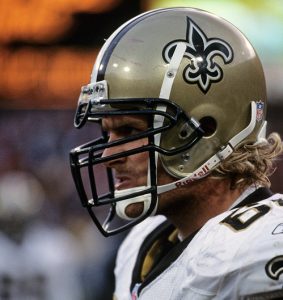
Pro football is a rough sport – the National Football League just reported concussions up 58 percent – and more and more players like Kyle Turley and Gerome Sapp are starting to come out of the shadows to talk about why they are choosing to treat their injuries with cannabis.
Former NFL offensive lineman, Kyle Turley admits concussions and opiate use from his time in the game has hurt him in the long run, and traditional pharmaceuticals are not the answer.
Turley spent ten seasons in the NFL with three different teams; the New Orleans Saints, St. Louis Rams, and the Kansas City Chiefs. Now he is creating a team of his own called the Gridiron Cannabis Coalition to advocate for more medical marijuana research.

Since retiring in 2007, Turley has been very outspoken about his two documented concussions (and over 100 undocumented), how ‘messed up’ his brain is and how the pharmaceutical drugs he was taking to treat his ailments gave him terrible hallucinations.
Wellbutrin and Depakote are only some of the laundry list of drugs he was put on by doctors. Speaking at the Emerald Cup about his troubled life on pharmaceuticals, he said his family suffered because the drugs made him do things he didn’t want to do.
“This is something I really got to try because I’m at my end.” – Kyle Turley
In an interview with ESPN, Turley recalled one of his near death experiences; “I remember vividly being at the induction, my Hall of Fame induction at San Diego State University. I was there by myself, my wife had to stay back with the kids in Tennessee. I found myself out on the balcony, to step out and get some air, and, you know, actually try to medicate with some cannabis, and I found as soon as I got out the door I wanted to jump off of the building.
Kyle Turley speaks about the benefits of medical cannabisFormer NFL All-Pro Kyle Turley on how cannabis has helped him and how it could help others.
Posted by Highly Questionable on Thursday, November 5, 2015
And if it weren’t for cannabis I don’t think I would have made it back to my hotel room.” – Kyle Turley
“We are trying to push forward by gathering members, said Turley in a phone interview with The Marijuana Times, “if we show solidarity under an organization, we can urge NFL to really lead on this, not follow. We can also be able to be a resource for policy projects and legislative groups pushing cannabis reform.”
The NFL has been plagued by players sustaining severe injuries while playing the game. Just this week, the NFL came out with a new data revealing the number of diagnosed concussions in 2015 is up 58 percent. That’s the highest number in any of the past four years.
“They are capitalizing on the fear factor of football.” – Kyle Turley
In an exclusive interview with The Marijuana Times, Turley laughed when he heard the statistic, then said, “these people are counting concussions, not looking for the medical answer that will save football.” He added; “They are not looking at cryotherapies or safety protocols that could mean life or death. They are capitalizing on the fear factor of football because it promotes the NFL – and in many ways it’s marketing the danger associated with it because it boosts ratings and sells merchandise.”
The repercussions from sustaining concussions are not felt in the short-term, rather, the link between the players sustaining concussions and Chronic Traumatic Encephalopathy (CTE) has been documented and studied at length. As The Boston University CTE Center finds, “we believe CTE is caused by repetitive brain trauma. This trauma includes both concussions that cause symptoms and subconcussive hits to the head that cause no symptoms.”
The CTE disease was first discovered in 2002 in the brain of former Pittsburgh Steeler Mike Webster by Dr. Bennet Omalu. The doctor told Forbes that the NFL wasn’t thrilled about going public with his finding. According to Omalu, “NFL doctors told me that if 10% of mothers in this country would begin to perceive football as a dangerous sport, that is the end of football.”

In our interview, Turley said he doesn’t believe that football will die, instead, being a football player will no longer be the dreams that parents want for their kids. “How many educated parents will let their kids play when the end result is the same? Like Dave Duerson who shot himself in the chest, that’s not going to bode well with those educated families that care about their children’s safety and well-being.” He added, “You fix it by implementing these cannabis treatments to our brain and as a country we haven’t done it.” Dave Duerson’s was diagnosed with CTE post-mortem. Currently there is no way to diagnose CTE while the athlete is still alive.
Turley uses cannabis to treat his injuries and his organization’s goal is to advocate for the legalization of the plant. “If NFL changed to allow medical cannabis, it would be huge – America would hear about it,” he said. However, he admits legalization and the NFL’s acceptance of using cannabis as a treatment will only come with federal acceptance through extensive research.
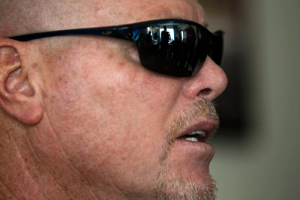
Former athletes like Jim McMahon of the Chicago Bears and Gerome Sapp also use cannabis now instead of narcotic painkillers. “They were doing more harm than good,” McMahon told The Chicago Tribune. “This medical marijuana has been a godsend. It relieves me of the pain — or thinking about it, anyway.”

Gerome Sapp played with the Baltimore Ravens and Indianapolis Colts from 2003 to 2007, he gave me first-hand insight as to what it was like to be treated for injuries as a player in the NFL.
“When I (we) were in ‘it’ we didn’t really think there was any other remedy available to us. The NFL has such strict guidelines on what we can and can’t put into our bodies, most players (including me) were a bit afraid to step outside the recommendations of team doctors/trainers in regards to pain management. And more important, we were all under the naive assumption that they had our best interest in mind. So a natural remedy wasn’t even thought about and the benefit of a natural remedy was never discussed or addressed. The response of “is it on the list of approved substances” seemed to be common,” Sapp explained.
The former pro athlete has a fracture in his vertebrae; “I have a fracture in my L5 Vertebrae, which caused that disk to slip. So I deal with the pain of that and the numbness it creates in my legs on a regular basis. Cannabis helps me to deal with this pain,” he said.
He’s been through surgeries, bone breaks, and tears throughout his career, “Cannabis helps to manage the pain of those past injuries as well,” he explained.
Sapp said the NFL’s 58 percent increase in reported concussions showed how the players are taking their injuries more seriously. “I must admit that the statistic of concussions being up 58% is a bit misleading in my opinion. I think players are paying more attention to the symptoms of a concussion, so they are reporting them at a higher rate than any other time in the history of the game (which is great),” he said.
SIDE NOTE: I conducted the interview with Gerome Sapp first, and when I heard his story so closely paralleling that of Turley, I asked if he was part of the Gridiron Cannabis Coalition. Sapp told me that he thinks what Turley is advocating for is great. When I later spoke to Turley, I told him about Sapp and he said he looked forward to meeting a fellow NFL player in the cannabis space and potentially working together.
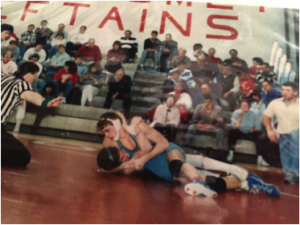
It’s not just pro athletes coming out of the shadows. Mike Crawford sustained a spinal injury from amateur wrestling. He found the relief he wanted in medical marijuana as well. In an interview with The Marijuana Times, he said, “I threw out the prescribed pills for cannabis.” He added, “Cannabis is known to be one of the safest anti-inflammatories, whether for the condition I deal with which is spinal nerve pain which shoots down my right leg or for that due to multiple brain concussions such as what McMahon is dealing with.”
Before his injury, Crawford was also a high school head wrestling coach. Now he is an expert on athletes and cannabis use, as well as a syndicated columnist and talk host.

“There’s a good reason why older athletes with chronic pain and injuries are advocating for cannabis, because it works with the least harm to our bodies and minds. Athletes are known to treat the body as a temple, cannabis fits perfectly with that mindset. Cannabis to me is the best medicine with the least amount of harm and long term side effects. If it works for your condition. For concussions, it would seem to definitely have some use for NFL athletes,” said Crawford.
NFL commissioner Roger Goodell once said about cannabis, “I’m not a medical expert, [but] we will follow medicine and if they determine this could be a proper usage in any context, we will consider that.”
Preeminent Harvard psychiatrist Lester Grinspoon responded to Goodell in an open letter about the known benefits of marijuana and the need for a huge upfront investment that, as Grinspoon puts it, only the NFL or the government could afford to provide. “Fortunately, the NFL’s pockets are plenty deep enough to launch a serious, intensive research program designed to determine whether or not some combination of cannabinoids is effective in preventing the consequences of concussions. This would not only be a great public service, it’s in the league’s own financial self-interest,” Grinspoon wrote.
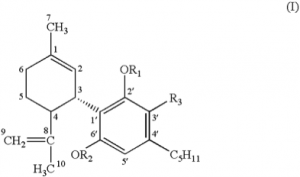
The U.S. Government currently owns a patent on cannabinoids as antioxidants and neuroprotectants and there are a slew of other studies showing associations between cannabinoids and positive outcomes. For example, one study found that a positive THC screen was associated with a decreased mortality rates in adults with Traumatic Brain Injuries and researchers found cannabinoids to produce anti-depressant-like effects.
The federal government continues to classify cannabis as a Schedule I drug, “so we are curious as to why the government patented the protective nature of it,” says Turley.
It’s too late for Turley, Sapp, and Crawford to benefit from any research proving preventative properties of cannabis, but it’s not too late for the NFL to fund clinical research on the plant.
Crawford closely follows the recent developments on cannabis research for injuries. “I feel like the NFL is now taking the issue of concussions seriously but yet still missing the boat that cannabis should be allowed as a treatment for that condition,” he said.
Sapp is about to take over as CEO of a legal cannabis company called Spinning Heads in Washington State, where cannabis is legal. He agrees that the NFL should pay for the research. “I feel that exploring cannabis as a solution to pain (while guys are still playing) and a remedy for brain injuries is not only logical, but needed,” he said.


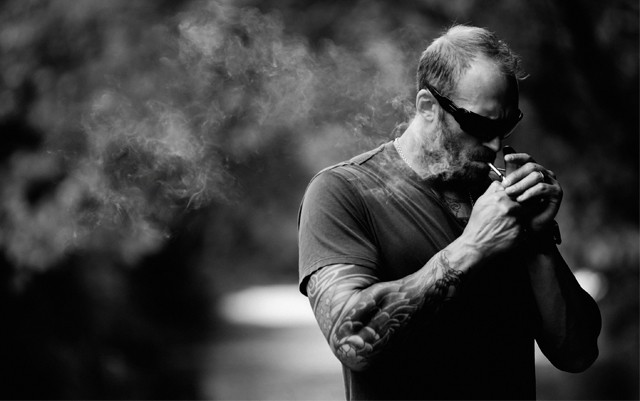
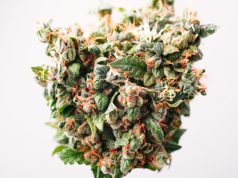
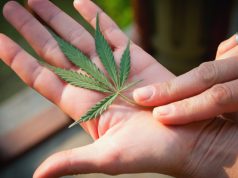


It’s about time to treat concussion injuries with CBD oil and THC medicine. I saw the movie Concussion with Will Smith acting as the doctor who discovered the brain disease caused by repeated blows to the head. The NFL is very powerful at avoiding the issue because of the profit involved in the game of professional football. But this also included college football concussions and perhaps even little league football. It is a serious problem that needs to be addressed. Go see the movie or rent Concussion and see for yourself how sad it is.
Daniel R. Ortega